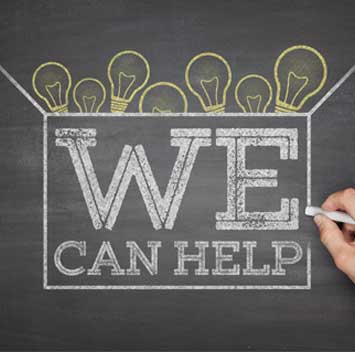How to Live a Happy Life and Maintain Good Relationships When You Suffer From Bipolar Disorder
Posted by Collaborative Counseling

Bipolar disorder is a mental health condition that causes extreme mood swings, from mania to depression. People with bipolar disorder can experience periods of feeling very high (mania) and periods of feeling very low (depression). These mood swings can interfere with a person’s ability to work, study, socialize, and maintain relationships.
Despite the challenges, it is possible to live a happy and fulfilling life with bipolar disorder. With the right treatment and support, people with bipolar disorder can manage their symptoms and live full and productive lives.
Here are some tips for living a happy life with bipolar disorder:
- Get treatment. The most important thing you can do for yourself if you have bipolar disorder is to get treatment. Treatment for bipolar disorder usually involves a combination of medication and therapy. Medication can help to stabilize your mood and reduce the frequency and severity of your mood swings. Therapy can help you to develop coping skills for managing your symptoms and to improve your overall mental health.
- Take care of yourself. People with bipolar disorder are more likely to experience health problems, such as heart disease, stroke, and diabetes. It is important to take care of your physical health by eating a healthy diet, exercising regularly, and getting enough sleep.
- Maintain a regular routine. Having a regular routine can help to stabilize your mood and reduce stress. This includes going to bed and waking up at the same time each day, eating regular meals, and exercising at the same time each day.
- Avoid alcohol and drugs. Alcohol and drugs can worsen the symptoms of bipolar disorder. It is important to avoid alcohol and drugs altogether.
- Get enough sleep. Getting enough sleep is essential for managing your mood and overall health. Most adults need around 7-8 hours of sleep per night.
- Learn relaxation techniques. Relaxation techniques, such as yoga, meditation, and deep breathing, can help to reduce stress and improve your mood.
- Build a support network. Having a strong support network of family and friends can be invaluable when you are living with bipolar disorder. Your support network can provide you with emotional support, practical help, and understanding.
- Educate yourself about bipolar disorder. The more you know about bipolar disorder, the better equipped you will be to manage your symptoms and live a happy and fulfilling life. There are many resources available to help you learn more about bipolar disorder, including books, websites, and support groups.
Living with bipolar disorder can be challenging, but it is possible to live a happy and fulfilling life. With the right treatment and support, you can manage your symptoms and live a full and productive life.
Maintaining Good Relationships
Maintaining good relationships can be difficult for people with bipolar disorder. Mood swings can make it hard to be consistent and reliable, and impulsive behavior can damage trust. However, it is important to have strong relationships in order to get through tough times.
Here are some tips for maintaining good relationships when you have bipolar disorder:
- Be honest with your loved ones about your condition. The more they know, the better they will be able to understand and support you.
- Communicate openly and honestly about your feelings. Don’t bottle things up, and don’t be afraid to ask for help when you need it.
- Be patient and understanding with yourself and others. Mood swings can be unpredictable, so it’s important to give yourself and others some grace.
- Set realistic expectations. Don’t expect to be able to do everything at once. Take things one step at a time, and don’t be afraid to ask for help when you need it.
Living with bipolar disorder can be challenging, but it is possible to have happy and fulfilling relationships. With the right support, you can build strong relationships that will help you through tough times.
Read More
 View Our Locations
View Our Locations Request Appointment
Request Appointment




